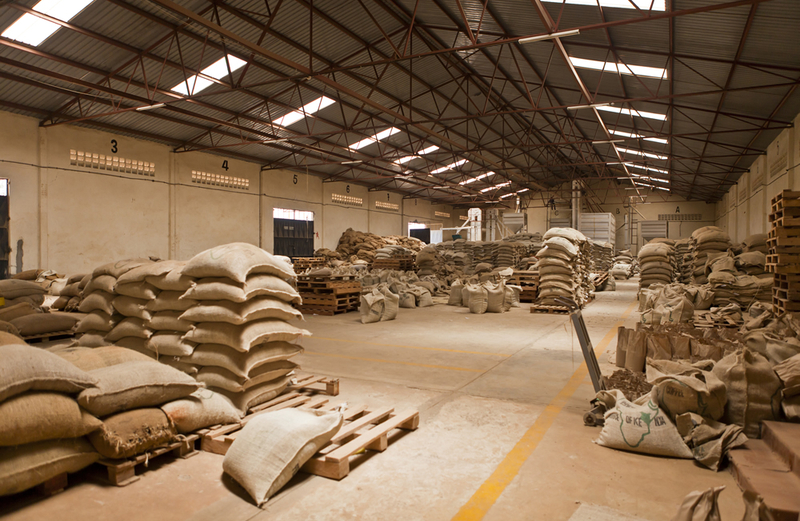FAO, AUDA-NEPAD seek to support implementation of Malabo Declaration Stakeholders’ meeting seeks to accelerate implementation of CAADP

06 December 2019, Johannesburg, South Africa—FAO and the African Union Development Agency (AUDA-NEPAD) organized a three day consultation on the Smart Policy Implementation Instruments to support implementation of the Comprehensive Africa Agriculture Development Programme (CAADP). The meeting took place in Johannesburg-South Africa, bringing together relevant stakeholders including public officials, representatives from civil society groups, private sector, think-thanks, national implementing agencies, regional and multi-lateral development banks, and technical partners.
These participants discussed how policy implementation instruments could support countries and regions in planning and implementing well-crafted NAIPs (National Agriculture Investment Plans) and RAIPs (Regional Agriculture Investment Plans) as part of the domestication of the Malabo Declaration process.
Welcoming the participants, Mr Winston Makabanyane from the Ministry of Agriculture of the host country, provided an historical snapshot of the CAADP process which began in 2003 saying it was instrumental in bringing Agriculture at the forefront of the development agenda on the continent. Despite the progresses recorded in the CAADP implementation, it is sadly noted that some countries are yet to develop their NAIPs, and/or are off-track to achieve the expected investment targets in the sector. The observed trend could be partly attributed to the lack of adequate policies reforms expected at the national level. The policy implementation instruments are therefore timely and fit the purpose to support the government to adequately undertake such reforms.
In his opening remarks, the FAO Subregional Coordinator for Southern Africa, Dr Alain Onibon stressed the need for policy implementation instruments which are required for policy makers to design and implement effective policies, “the same way dentists and mechanics, require specific tools to perform their craft,” he said.
Dr Augustin Wambo Yamdjeu, Head of CAADP, articulated similar concerns as well as opportunities, adding that the Johannesburg convening expected to support the finalization of a draft menu of policy implementation instruments. He reminded participants that the meeting was not a validation workshop. Rather, sought to gather contributions from the various consutiences present to inform the refinement of the existing draft document.
The three day workshop was critical for the participants to be sensitized on the importance of the “Policy Implementation Instruments” through a presentation and role play. While the CAADP advocacy has paid-off, the initial targets to achieve a 6% and 10% growth and investment in the sector respectively by countries, remain very low.
The lessons learnt from the 10 years of implementation emphasized the need to better assist countries to prioritize impactful value chains and strengthen the organizational capacities of the public sector to plan well. It was therefore realized that, after getting both the planning process and priotity setting right, the missing link was the set of policy implementation instruments, which could be embraced by the countries to ensure a systematic funding of their NAIPs. This will be critical in triggering the much-sought paradigm shift from “projectization of the NAIPs observed in the early days of CAADP to self-sustaining interventions” he expanded.
A brief introduction of the instruments package was backed by countries sharing experience including Eswatini, South Africa, Namibia, Botswana and Lesotho. Officials from these countries highlighted how policy implementation instruments, including subsidies, investment promotion strategies, etc. were used to address critical issues in the sector.
Participants were also provided with first-hand experience of the instruments working in groups, which enabled them to gather critical feedback towards improving the existing drafts. These comments pertained to the user-friendliness, the value addition in the NAIP process, the further development avenues of the instruments and further training requirements.
An emerging consensus from the discussion was the need for enhanced advocacy to enable the uptake the instruments. These will involve further collective actions to mainstream them in the universities curriculum, national and regional policies, and parliamentarian dialogues, through the support of Policy Influencers.
Concluding on the deliberations, Dr Wambo Yamdjeu commended the fruitful outcome of the meeting, which is an important milestone in the ongoing process to support the fast-tracking of agriculture transformation in Africa through the Policy Implementation Instruments. The overall poor performance of African agriculture as revealed by the recent Malabo Biennial Review report, recalls the need to further support the countries using the instruments to drive actions and results.



